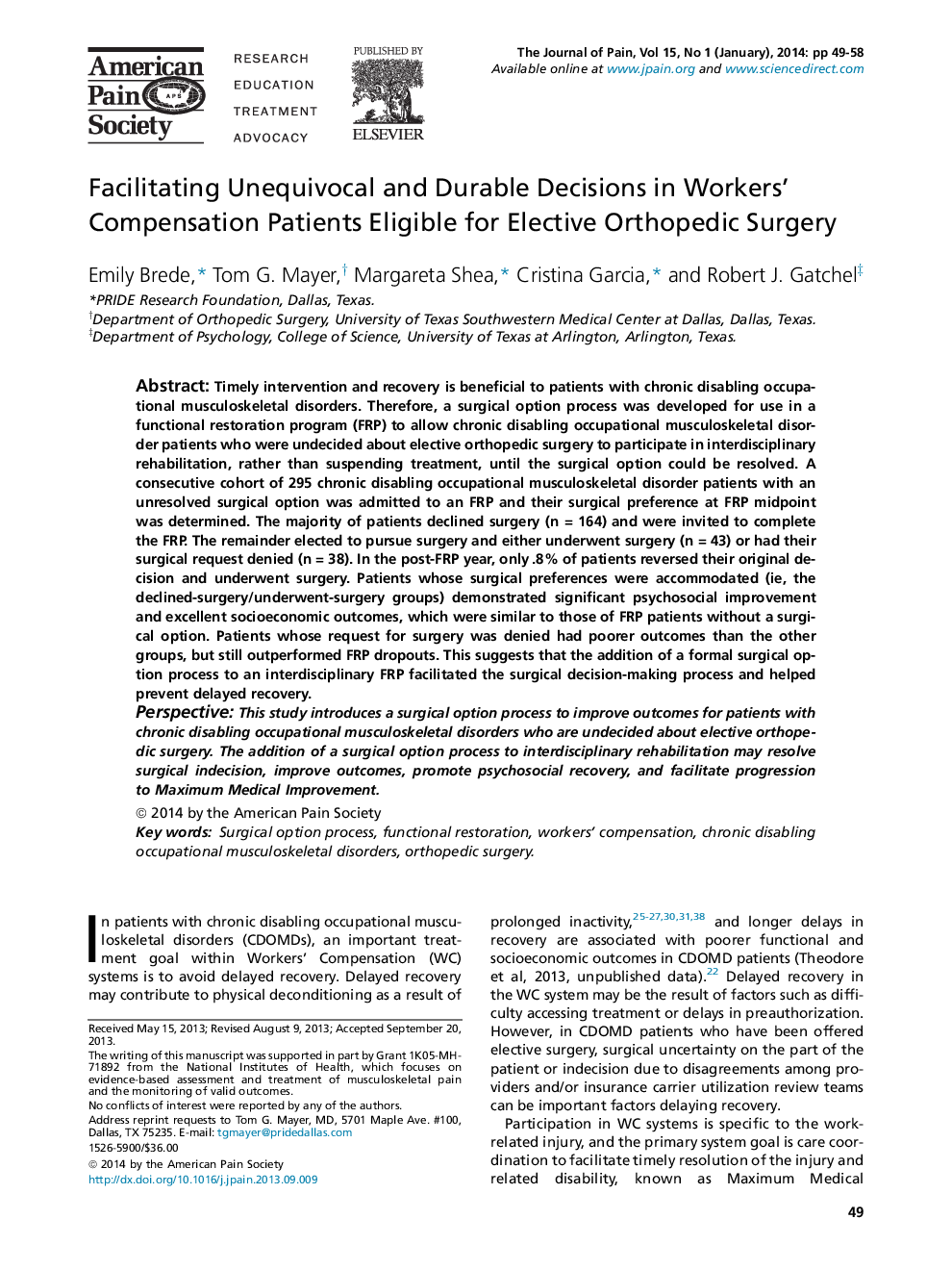| Article ID | Journal | Published Year | Pages | File Type |
|---|---|---|---|---|
| 2728875 | The Journal of Pain | 2014 | 10 Pages |
Timely intervention and recovery is beneficial to patients with chronic disabling occupational musculoskeletal disorders. Therefore, a surgical option process was developed for use in a functional restoration program (FRP) to allow chronic disabling occupational musculoskeletal disorder patients who were undecided about elective orthopedic surgery to participate in interdisciplinary rehabilitation, rather than suspending treatment, until the surgical option could be resolved. A consecutive cohort of 295 chronic disabling occupational musculoskeletal disorder patients with an unresolved surgical option was admitted to an FRP and their surgical preference at FRP midpoint was determined. The majority of patients declined surgery (n = 164) and were invited to complete the FRP. The remainder elected to pursue surgery and either underwent surgery (n = 43) or had their surgical request denied (n = 38). In the post-FRP year, only .8% of patients reversed their original decision and underwent surgery. Patients whose surgical preferences were accommodated (ie, the declined-surgery/underwent-surgery groups) demonstrated significant psychosocial improvement and excellent socioeconomic outcomes, which were similar to those of FRP patients without a surgical option. Patients whose request for surgery was denied had poorer outcomes than the other groups, but still outperformed FRP dropouts. This suggests that the addition of a formal surgical option process to an interdisciplinary FRP facilitated the surgical decision-making process and helped prevent delayed recovery.PerspectiveThis study introduces a surgical option process to improve outcomes for patients with chronic disabling occupational musculoskeletal disorders who are undecided about elective orthopedic surgery. The addition of a surgical option process to interdisciplinary rehabilitation may resolve surgical indecision, improve outcomes, promote psychosocial recovery, and facilitate progression to Maximum Medical Improvement.
